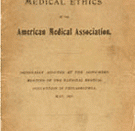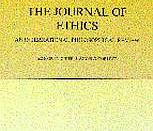According to Webster's (1983) ethics can be defined as having to do with or conforming to moral standards or professional standards of conduct. It can also be described as the study of reasoning about moral right and wrong, which nurtures the moral consciousness and establishes the basis for right actions by military leaders Stromberg Wakin and Callahan (1982). Military ethics is an ethics of institutions, and we should not presume that such an ethics is structured in the same way as an ethics of personal relations (Fotion and Elfstrom (1987). It will touch the fate of huge numbers of people and often be impersonal. The important institutions of military ethics are subject to no social control or higher authority.
The main characteristic of an ethical issue is that it raises basic questions of right and obligations, of good and evil, of the ends and purposes of individual lives and those of major social institutions.
In the military as well as in some other professions there are professional standards we are expected to live by. These standards are enforced on a daily basis to ensure compliance. Ethical behavior is not something merely desirable to add to other professional skills, but it is meant to be a vital part of deploying those skills and using them most effectively. Military ethics was developed to address problems and circumstances specific to the military profession. Even though ethical awareness is being stressed at all levels there is an ongoing debate to determine if military ethics should have a code like other professions.
The army has seven values that every service member should be familiar with and are actively practicing. These values are Leadership, Duty, Respect, Selfless-Service, Honor, Integrity, and Personal-Courage. Honor is the value based on moral values and ethical behavior rooted in universally accepted...



Military Ethics
You have written a well documented and researched essay on ethics in the military. Although West Point cadets have not been immune from dishonesty, I have always admired their code which reads: "A cadet will not lie, cheat or steal, nor tolerate those who do."
It's the "tolerate those who do" part that's most tricky. There are those who think that they are honest while knowing that their friends lie, cheat or steal. I beg to differ. Dishonesty is contagious and nobody is immune from catching it from one's friends.
If our friends lie, cheat or steal, maybe it's time to find new friends. Nice work!
8 out of 8 people found this comment useful.